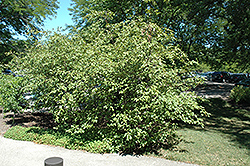Fri & Sat 8am - 8pm
Sun 8am - 7pm
Anytown, USA 12345
fax: 261.787.0463
e-mail: info@successgc.com


Plant Finder

Height: 20 feet
Spread: 15 feet
Sunlight:
![]()
![]()
Hardiness Zone: 2b
Other Names: Speckled Alder, Smooth Alder
Description:
A great small tree for difficult wet locations, will almost grow in standing water; no particularly striking ornamental features, but an overall neat and well-behaved tree
Ornamental Features
Red Alder has forest green deciduous foliage on a tree with an upright spreading habit of growth. The oval leaves turn yellow in fall.
Landscape Attributes
Red Alder is a deciduous tree with an upright spreading habit of growth. Its average texture blends into the landscape, but can be balanced by one or two finer or coarser trees or shrubs for an effective composition.
This is a relatively low maintenance tree, and is best pruned in late winter once the threat of extreme cold has passed. It has no significant negative characteristics.
Red Alder is recommended for the following landscape applications;
- Shade
Planting & Growing
Red Alder will grow to be about 20 feet tall at maturity, with a spread of 15 feet. It has a low canopy with a typical clearance of 4 feet from the ground, and is suitable for planting under power lines. It grows at a medium rate, and under ideal conditions can be expected to live for 50 years or more.
This tree does best in full sun to partial shade. It is quite adaptable, prefering to grow in average to wet conditions, and will even tolerate some standing water. It is not particular as to soil type or pH. It is highly tolerant of urban pollution and will even thrive in inner city environments. Consider applying a thick mulch around the root zone in winter to protect it in exposed locations or colder microclimates. This species is native to parts of North America.
